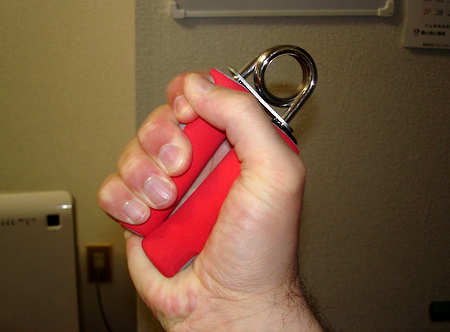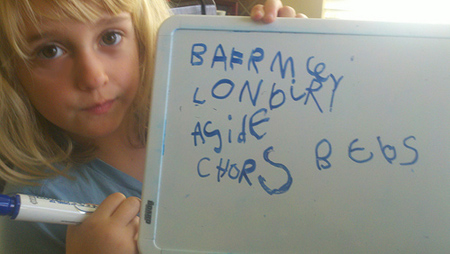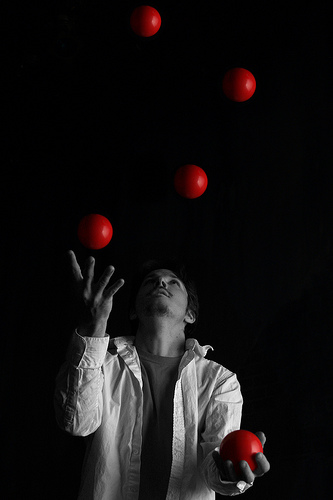
A number of my posts in coming weeks will make mention of His Holiness the 14th Dalai Lama. I was fortunate enough to hear him speak recently in Middlebury, Vermont, and since then I’ve been listening to some of his recorded public talks, which are freely available along with a lot more interesting material at dalailama.com. Thinking about some of the things the Dalai Lama has said, I found myself faced with a question about my own life: I know a lot about how to act in my own best interests, yet some of the time I act as though I only understood short-term pleasures and not long-term happiness. Why is that?
Based on bits gleaned from psychology, neurology, and meditative practice, I came up with three things I need in order to ensure I act in the best way possible-to encourage my own success while simultaneously letting go of stress, overcoming fear, enjoying what I’m doing, and staying in touch with my highest goals and aspirations. It’s a tall order, and the three things aren’t easy. On the bright side, though, they are simple.
1. Attention
A good habit is a treasure, because it takes no special effort to follow. When I show up to Taekwondo several times a week and get a good, long workout, it’s not because I’m thinking about or planning exercise: it’s because I’m used to going to Taekwondo. In the same way, bad habits are serious trouble. In order to break a bad habit, or even to overcome it on a one-time basis, we usually need to be able to direct attention to what we’re thinking, feeling, and doing. We could also talk about attention as having to do with self-awareness or mindfulness.
For example, I might be tempted to sleep in some morning and risk being late for an appointment. It’s difficult to battle this intention if I’m just thinking about how it would feel to stay in bed versus how it would feel to get up, and especially if I have a habit of sleeping past my alarm. However, if I consciously think about things like
- “If I get up now, I can be on time-and if I don’t, I risk being late”
- “Staying in bed is pleasurable, but I like showing up on time to things too”
- “I’ll have to get up sooner or later, and it probably won’t be any easier in 15 minutes than it is now”
… and other things in the same vein, then I’m able to make a decision rather than just succumbing to my gut feelings.
2. Calmness
Buddhist teaching warns about the danger of attachment, of strong emotion. Speaking honestly, I’m not entirely sure how this applies to strong positive emotions like love or delight, though I could make some guesses. What I am sure of is that getting wrapped up in my own emotions and doing nothing about it leaves me in a position where it’s hard to change or do the things that are best for me. Being able to step back from our emotions and out of a frame of mind dominated by thoughts like “I really, really want that” or “I’m afraid!” or “I feel embarrassed” puts us in a place of calmness from which we can think about our long-term interest and our well-being-not to mention other people’s long-term interest and well being. Not having that calmness keeps us confused and short-sighted, bogged down in an obscuring cloud of emotional debris.
This site offers a wide range of tools for working with emotions, even very strong ones, including idea repair, understanding mental schemas, and much else. If I want calmness, there’s usually some way for me to achieve it.
3. Understanding
I started out thinking of this item as “knowledge,” but I realized that it includes not just understanding how my mind works, having good organizational strategies, and knowing how to keep myself healthy, but also ideas of what’s truly important, what leads to real happiness, what the value of a good relationship is, and what kinds of goals are worth pursuing. Having attention and calmness is not nearly as useful when I don’t have the understanding to use that attention and calmness by making and acting on good decisions.
That’s it: attention, calmness, and understanding. If I can remember to look for those three things, my theory goes, I’ll be on top of the world. I’ll report back and let you know how it’s been working for me. I’d be very interested if you care to do the same, whether in comments or privately through the contact form.
Photo by Hani Amir









